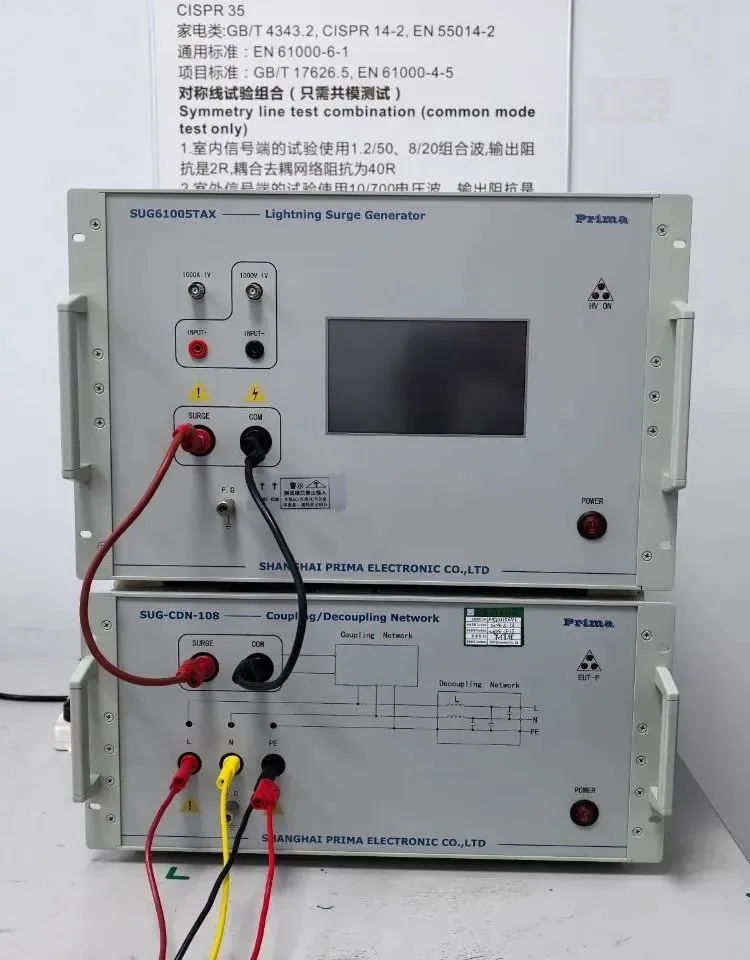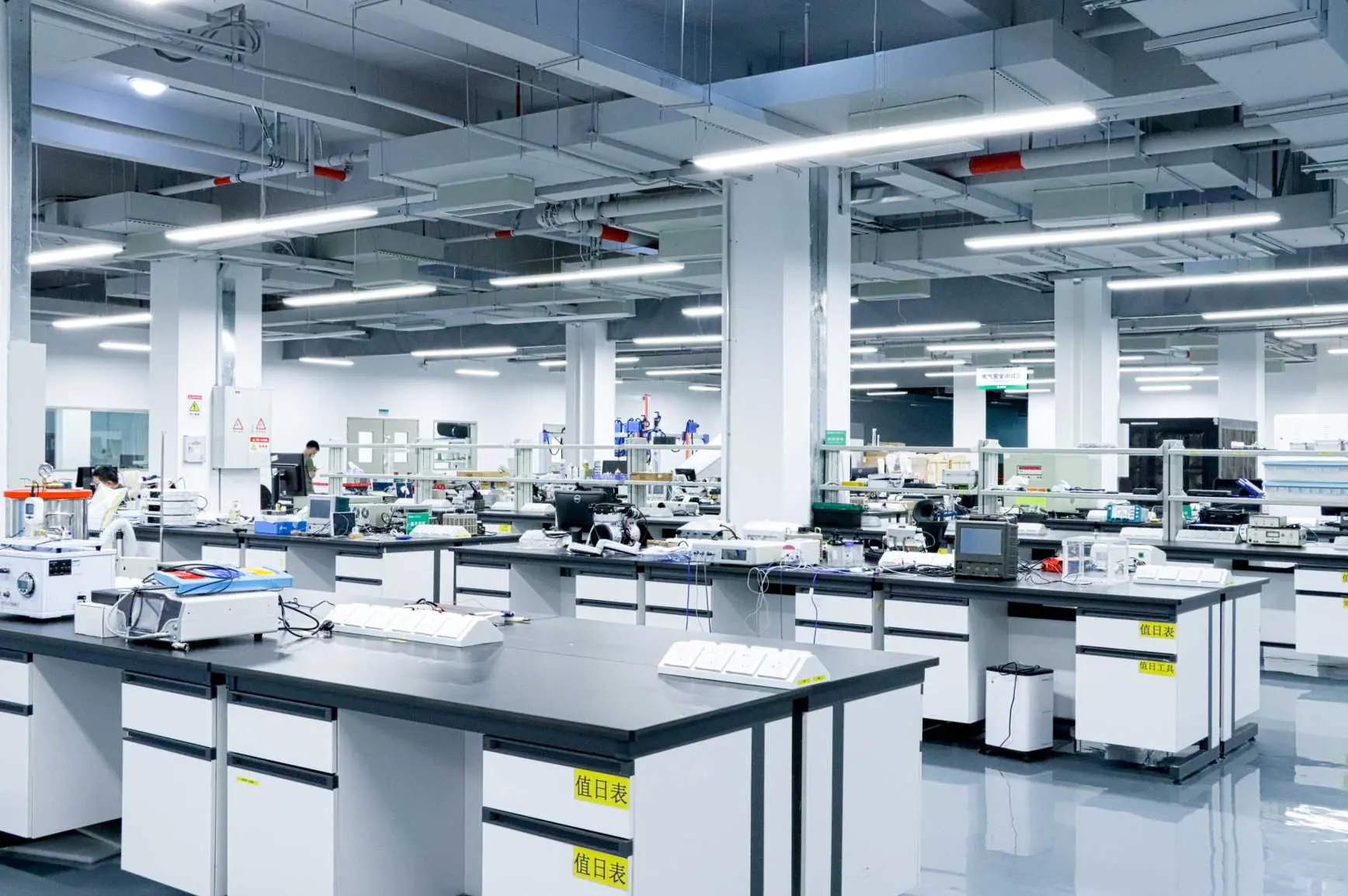
FCC Radiation tests cell phone
FCC certification mainly tests two parts: EMC/RF and SAR. If the mobile phone has Bluetooth functionality, the Bluetooth performance also needs to be tested. The standards used for testing include fcc part 15C, FCC PART 22H, FCC PART 24H, and OET Bulletin 65. Among these, the GSM850 band EMC/RF testing standard uses FCC PART 22H, the GSM1900 band EMC/RF testing standard uses FCC PART 24H, sar testing standard uses OET Bulletin 65, and FCC Bluetooth testing standard uses FCC PART 15C.
The FCC PART 22H/24H EMC/RF testing items for mobile phones include:
1) Output Power
2) Emission Limit
3) Conducted Emission
4) Frequency Stability
5) Occupied Bandwidth
6) Emission Bandwidth
7) Band Edge Compliance
8) Conducted Spurious Emission
The FCC OET Bulletin 65 sar testing items for mobile phones include:
1) SAR of Head
2) SAR of Body
3) SAR of GPRS
4) SAR of Body with Bluetooth
The FCC SAR limit is 1.6W/kg. If the measured value is lower than this limit, it complies with the standard.
The FCC PART 15C Bluetooth testing items include:
1) Power Output
2) Occupied Bandwidth
3) Band Edge Compliance
4) Conducted Spurious Emission
5) Conducted Emission
6) Time of Occupancy (Dwell Time)
7) Number of Hopping Frequencies
8) Carrier Frequency Separation
9) Radiated Spurious Emission
During the FCC certification process, an fcc id is required. The format of the FCC ID is XXX123…, where XXX represents the grantee code authorized by the FCC, with each applicant (company) having a unique grantee code. 123… represents the product code, which can have a maximum of 14 characters and can only consist of English letters, numbers, or "-". Spaces or other characters are not allowed. Every product certified by the FCC will have an FCC ID.
How Much Does FCC emc testing cost?
Our laboratory provides FCC EMC testing reports for $900, with a testing time of 10 working days (our fees are 30% lower than other laboratories).
Email:chen18814186731@gmail.com
Introduction to FCC Certification:
What is FCC certification?
FCC stands for Federal Communications Commission. Many wireless applications, communication products, and digital products (operating frequencies from 9KHz to 3000GHz) entering the US market require FCC approval.
Difference between FCC-ID and FCC-SDOC:
FCC-ID is mainly for wireless communication equipment products: Bluetooth headsets, Bluetooth speakers, mobile phones, etc.;
FCC-SDOC is mainly for ordinary electronic appliances: products without wireless functions;
Which products fall within the scope of FCC certification?
FCC has established technical standards for testing electronic and electrical equipment based on the type of RF emissions. According to regulations, they can be divided into several types:
FCC Part 15 - Radio Frequency Devices
fcc part 18 - Industrial, Scientific and Medical Equipment
FCC Part 22 - Cellular Phones
FCC Part 24 - Personal Communication Systems
FCC Part 68 - Communication of Terminal Equipment of the Telephone Network
FCC Part 74 - Experimental Broadcast, Auxiliary, Special Broadcast, and Other Program Distribution Services
FCC Part 90 - Personal Land Mobile Radio Services
FCC Part 95 - Personal Radio Services
Specifically applicable products include:
Personal computers and peripherals (monitors, keyboards, power adapters, mice, etc.);
Household appliances, power tools (refrigerators, irons, electronic sterilizers, electric toys, automatic rice cookers, washing machines, drills, nail guns, etc.);
Audio and video products (radios, set-top boxes, home audio systems, etc.);
Lighting fixtures (LED fixtures, energy-saving lamps, stage lights, embedded fixtures, etc.);
Wireless products (Bluetooth, wireless remote control toys, wireless remote control switches, wireless thermometers, wireless mice and keyboards, etc.);
Toy products (metal toys, plastic toys, plush toys, electronic toys, etc.);
Security products (alarms, security products, access control, cameras, etc.);
Industrial machinery (food machinery, printing machinery, electrical control systems for machinery equipment, amusement facilities, etc.)
FCC certification testing items include:
l Radiated emission;
l Conducted emission;
l Harmonic current;
l Flicker;
l Frequency error;
l Adjacent channel power;
l Emission;
l Conducted carrier power;
l Effective radiated power;
l Loudness of the transmitter to modulation frequency;
l Range of modulation bandwidth of broadband equipment;
l Frequency stability under low voltage conditions, etc.;
nbsp;
Summary of FCC standards:
FCC Part 15: Radio Frequency Devices
FCC Part 15, Subpart B: Unintentional Radiators
FCC Part 15, Subpart C: Intentional Radiators
FCC Part 18: Industrial, Scientific and Medical Equipment (ISM)
FCC Part 68: Communication of Terminal Equipment of the Telephone Network
FCC Part 87: Aviation Services
FCC Part 90: Private Land Mobile Radio Services
FCC Part 97: Amateur Radio Services
IEEE/ANSI C63.4: American National Standard for Methods of Measurement of Radio-Noise Emissions from Low-Voltage Electrical and Electronic Equipment in the Range of 9 kHz to 40 GHz.
IEEE/ANSI C63.10: American National Standard of Procedures for Compliance testing of Unlicensed Wireless Devices.
IEEE/ANSI C63.15: American National Standard Recommended Practice for the Immunity Measurement of Electrical and Electronic Equipment.
IEEE/ANSI C63.17: American National Standard Methods of Measurement of the Electromagnetic and Operational Compatibility of Unlicensed Personal Communications Services (UPCS) Devices.
FCC MP-5-1986: Methods of measurement of radio noise emissions from Industrial, Scientific and Medical (ISM) equipment).
Documents required for FCC certification application:
1) User manual
2) Block Diagram
3) Operation Description
4) Circuit schematic
5) RF modulation
6) Rated Power Declaration
7) TCB Form 731 application form
8) Authorization letter POA
9) FCC confidentiality letter
Note: The FCC ID certification requires the submission of the following documents and requirements:
(1) FCC application form: The application company's name, address, contact information, product name and model, and applicable standards must be accurately provided;
(2) FCC authorization letter: It must be signed and stamped by the contact person of the applying company and scanned into electronic format;
(3) FCC confidentiality letter: The confidentiality letter is an agreement between the applying company and the TCB organization to keep the product information confidential. It must be signed and stamped by the contact person of the applying company and scanned into electronic format;
(4) Block diagram: All crystals need to be drawn, along with their frequencies, and must match the circuit diagram; (5) Circuit diagram: Must be consistent with the block diagram in terms of crystal frequency, number of crystals, and crystal locations;
(6) Line description: Must be in English, clearly describing the functional implementation principle of the product;
(7) User manual: Must include an FCC Statement;
(8) Labels and label positions: Labels must have the FCC ID number and Statement, and the label position must be prominent;
(9) Internal and external photos of the product: The pictures must be clear and annotated if necessary;
(10) Test report: Testing must be completed, and the product must be evaluated comprehensively according to the standard terms;
fcc logo size official requirements website: https://www.fcc.gov/general/logos-fcc
Cycle required for FCC certification:
Currently, FCC certification mainly tests product radiation, conduction, and other content.
fcc sdoc: Testing is completed in 5-7 working days
FCC ID: Testing is completed in 10-15 working days
For mobile phones, certification requirements in the North American region include PTCRB certification, FCC certification, and if the phone supports Bluetooth, Bluetooth certification is also required."
Email:chen18814186731@gmail.com
Email:hello@jjrlab.com
Write your message here and send it to us
 What Are the Testing Items of California Propositi
What Are the Testing Items of California Propositi
 E-Cigarette EU TPD Testing
E-Cigarette EU TPD Testing
 Testing Certification for E-cigarettes Exported to
Testing Certification for E-cigarettes Exported to
 What is Amazon US CPC Certification?
What is Amazon US CPC Certification?
 UK Toy Safety Regulation Standard EN 71-13
UK Toy Safety Regulation Standard EN 71-13
 What is EU UFI Registration?
What is EU UFI Registration?
 EU UFI Registration for E-cigarette E-liquid
EU UFI Registration for E-cigarette E-liquid
 How to get the MSDS Report for Electronic Cigarett
How to get the MSDS Report for Electronic Cigarett
Leave us a message
24-hour online customer service at any time to respond, so that you worry!




